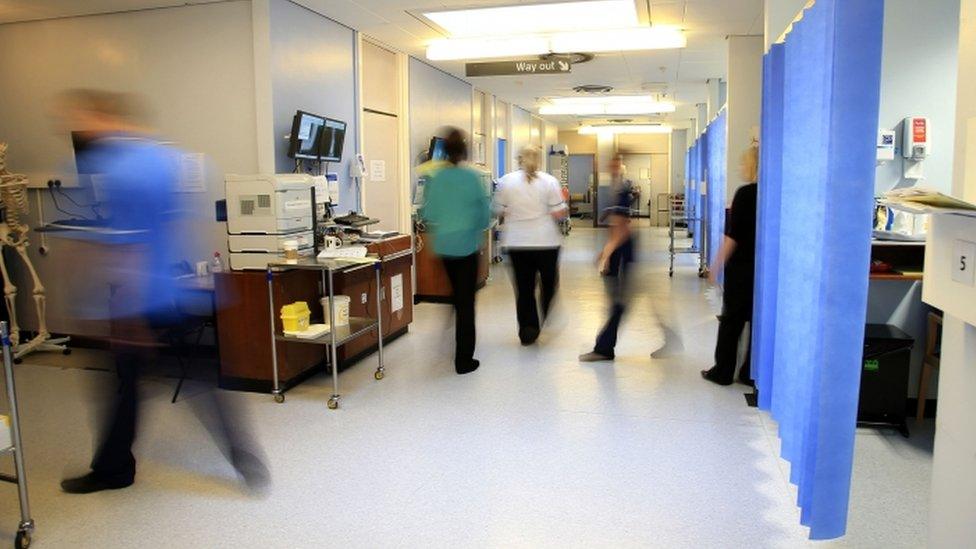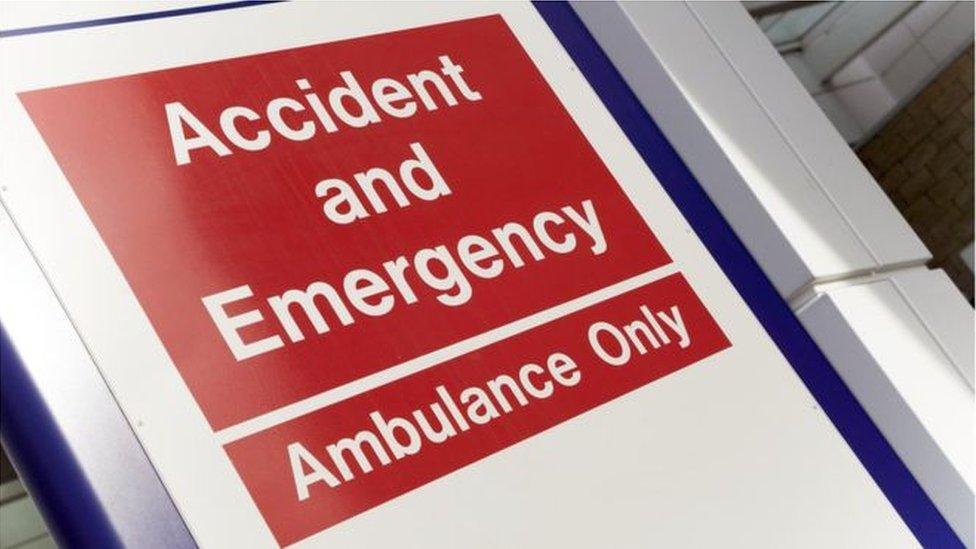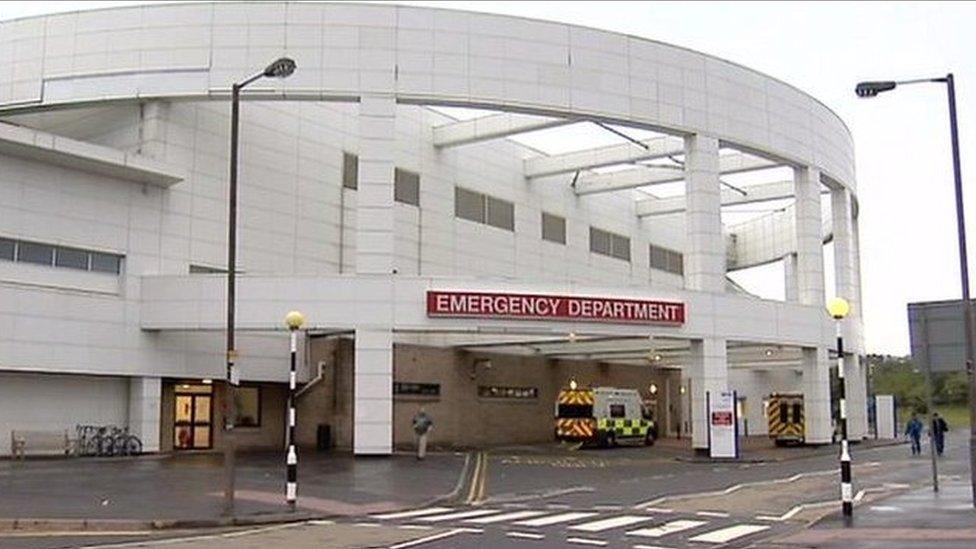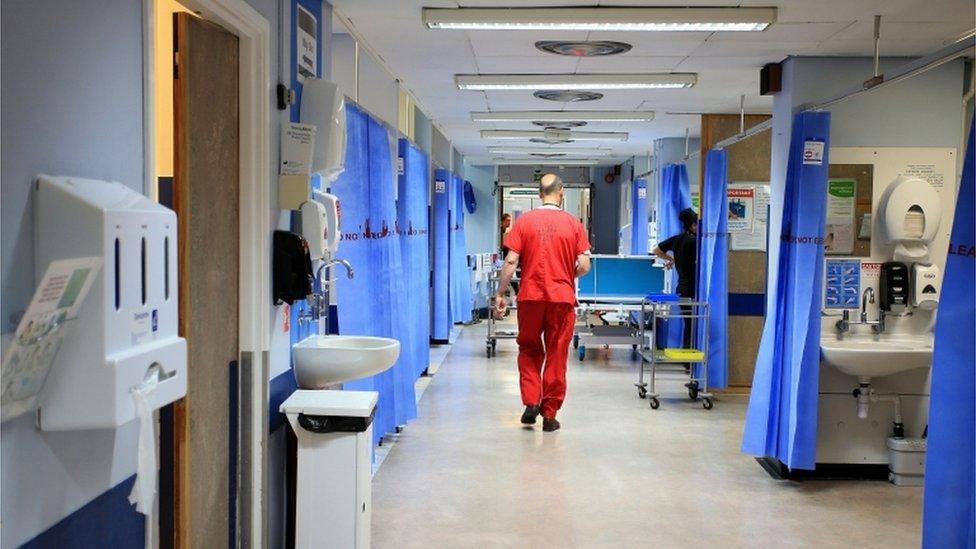A&E target time pressures 'lead to avoidable child admissions'
- Published
- comments

Pressure on emergency departments to see patients within four hours has led to a surge in "avoidable" child admissions, according to a new study.
The number of children admitted to hospital in Scotland as emergency referrals rose almost 50% across the 13-year period of data.
But University of Aberdeen researchers found no evidence of an increase in youngsters getting seriously ill.
They called for parents to be better educated on when to ask for help.
But Scotland's deputy chief medical officer, Dr Gregor Smith, said the decision whether to admit or not was often not straightforward.
'Supportive environment'
He added: "The introduction of day assessment facilities on many children's wards has been a positive development that allows full assessment of children who are unwell in an appropriate, supportive environment for families and carers by staff who are familiar with this type of care.
"Some of these children will subsequently be discharged."
NHS targets give hospitals four hours in which to treat and discharge or admit or transfer a patient. They are expected to do that in 95% of cases.
Recent figures show fewer patients in Scotland are waiting longer than four hours in A&E than they did in 2012/3 in contrast to England.
However, the latest study looked at the increased number of child admissions who were discharged the same day.
Of those, the vast majority were usually treated with only clear fluids and paracetamol - which could be done at home.

Researchers suggest the surge may be due to a number of factors, including pressure on emergency departments to see patients within four hours, which have added unnecessary workloads to hospital staff.
Prof Steve Turner, consultant paediatrician at Royal Aberdeen Children's Hospital, said: "In the old days, emergency departments would be able to observe children and decide whether they have to be admitted. Now they have to decide quickly - they don't have the luxury of sitting and watching a child.
"The fact that these children are coming all the way into hospital and then being sent home on the same day after receiving treatment they could have got at home suggests that many emergency admissions are potentially avoidable."
Prof Turner said that hospital staff were being taken away from other duties to help look after the children being admitted.
He said: "Clearly we all need to provide a safe healthcare service for children, and the paediatric hospital team need to support colleagues in the community.
"If we can better educate parents with clear and easy-to-understand information, they may have a clear understanding of when to ask for help and when not to."
Next-day appointments
The study, published in the European Journal of Paediatrics, found the number of paediatric emergency admissions increased by 49% between 2000 and 2013.
It went from 36 per 1,000 children to 54 per 1,000 by the end of the period.
However, the number of those discharged on the same day surged by 186% during the same time - from 8.6 per 1,000 to 24.6 per 1,000.
Prof Turner said experts working in primary care, emergency department and the out-of-hours service need to have more options open to them other than "admit or not".
Next-day appointments for children who have been unwell for a few days but were not seriously unwell was another idea put forward.
The Royal College of GPs has acknowledged its members could benefit from more training and support in caring for children who are unwell.
- Published19 December 2017

- Published7 December 2017
